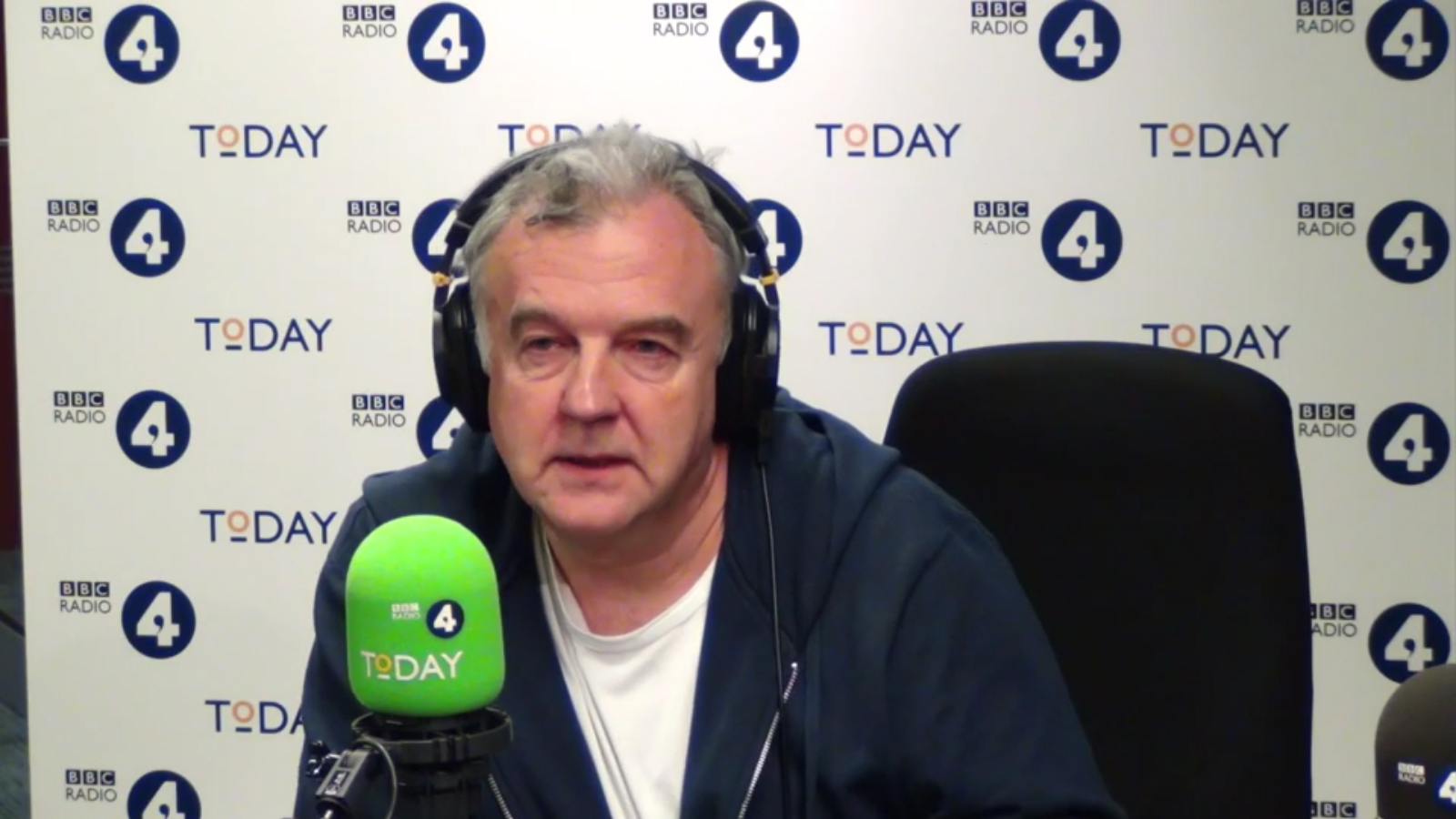Original article can be found on Movier.net
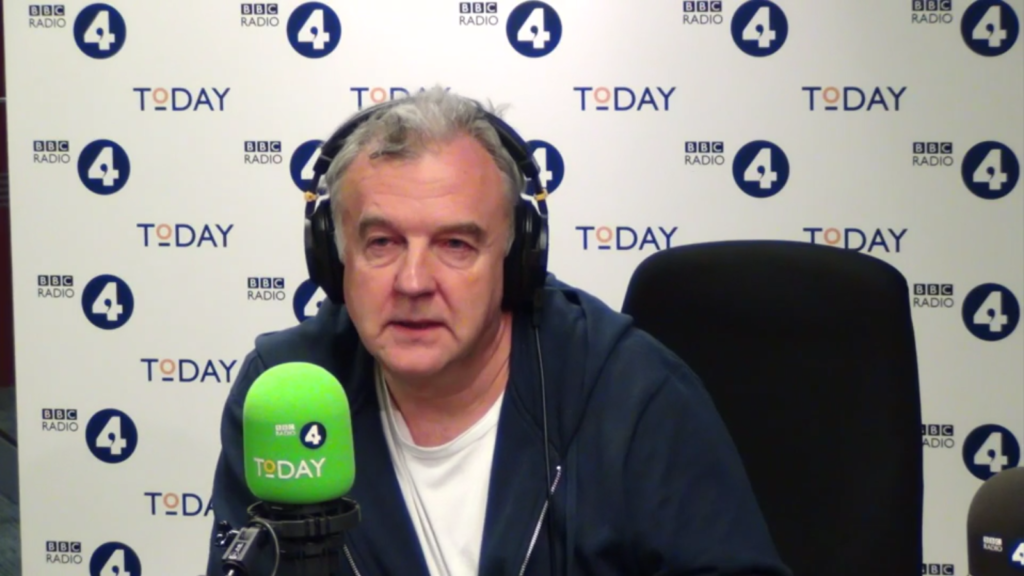
Andy Wilman gives an interview because Jeremy Clarkson, James May and Richard Hammond’s motoring show The Grand Tour returns to Amazon on December 13, but it’s not exactly more of the same from the British trio.
The presenters have ripped up the format that made the show one of Amazon’s biggest attractions. They have ditched the studio tent, test track and car reviews, and are instead focusing on a sequence of feature-length specials. In fact, for their first adventure in season four, The Grand Tour presents: Seamen, there are barely any four-wheeled vehicles in sight, as Clarkson, Hammond and May charter boats for an epic journey along the Mekong Delta in Vietnam.
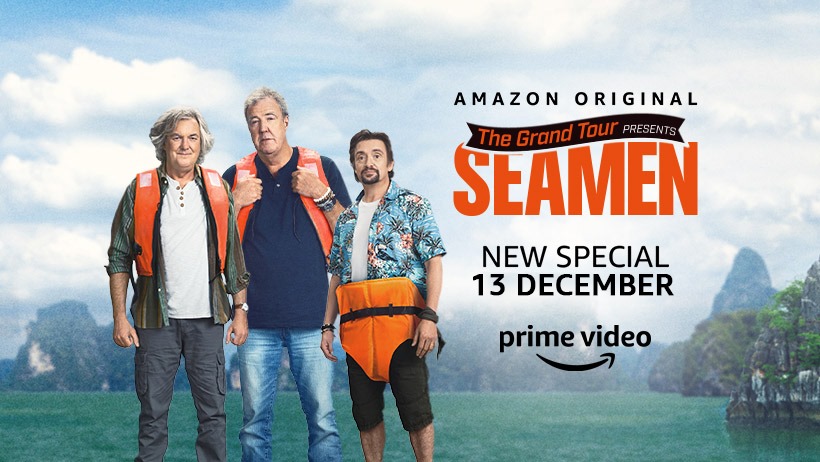
Sitting behind it all is executive producer Andy Wilman, the unseen fourth-wheel in The Grand Tour team who puts the show on the road. In his trademark unvarnished style, Wilman told Deadline that the refresh was all a matter of quality control amid fears that viewers were beginning to think “not this old crap again.” Happily, he said, stripping the show back to road trips chimed with Amazon data, which showed peaks in viewing around previous specials, such as the two-part Colombia adventure in season three.
In an interview at Seamen‘s press launch, Wilman explained what the changes have meant to their production process, budgets and creative freedom at Amazon. Wilman also reflected on going into business with BBC Studios-backed Expectation, the explosion in TV streaming, his plans to get into drama, and a “good luck” email from Jeff Bezos. The issue of climate change also came up after The Grand Tour acknowledged the phenomenon for the first time when seeing water shortages at Tonlé Sap lake in Cambodia while filming Seamen.
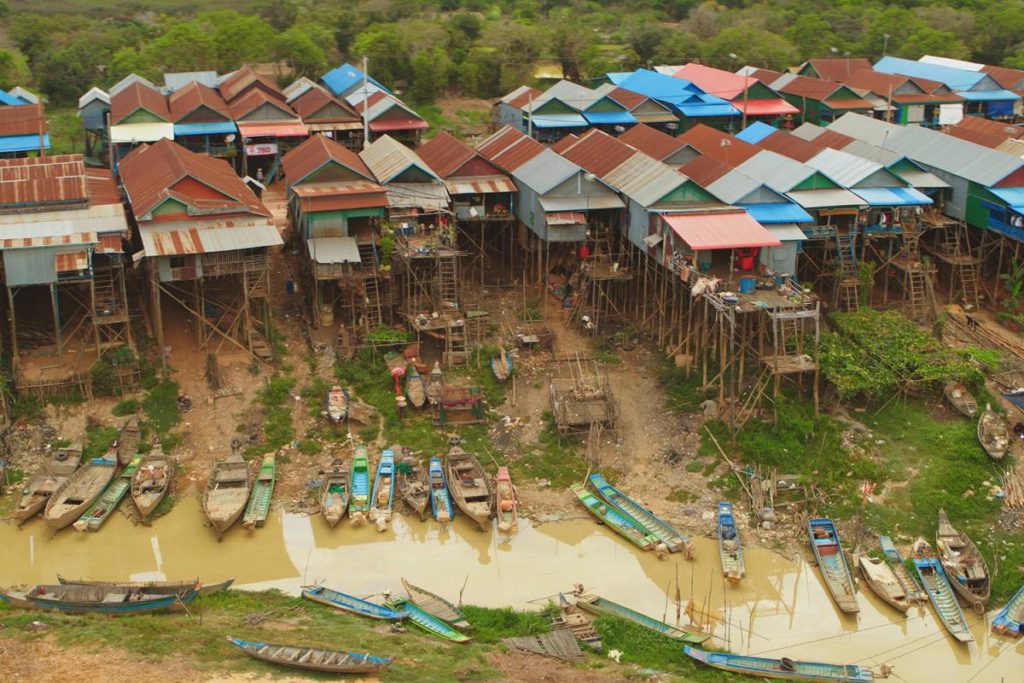
The interview has been edited for length and clarity.
DEADLINE: Can you go back to the point where you decided that ditching the tent was the right thing to do, and why you made that decision?
ANDY WILMAN: It’s a 17-year venture for us. That’s the clock we look at and paranoia is about outstaying your welcome with the viewers. If they’re going, “Oh, fucking hell, not this old crap again.” We were at the point where we’re conscious of it now. The last show, the last series, series three we did worked very well. Amazon, I think, will happily say when it’s on, it’s their biggest hit and so on, and the show is their biggest show. But we are conscious that 12 of those a year, we’ve got to keep coming up with the ideas because we haven’t got this strong format.
We’re not The Apprentice where you go and do the shampoo bottle challenge, sell the fish challenge and all that, which are all good because it’s different people. You don’t mind. The challenge can be the same because it’s what numpties are doing it this year. But we’ve still got the same three numpties, so we’ve got to keep doing different challenges and we were just conscious that, f**k it, we don’t want to drop the ball. And so we wanted to do less, keep the quality up. And the good thing is Amazon have billions of tons of data about how people watch.
So was the data telling them that your specials performed better than the traditional studio shows?
There’s always a spike. There’s always more enjoyment.
Can you give me any insight on the figures?
No, I couldn’t. We don’t get any figures from them.
You don’t get the figures?
Do we f**k? No, nobody gets figures. But I’ve given up with that. I’m happy with that now. That’s my life.
You get anecdotal evidence from them, I presume?
No, I don’t get anything. We don’t have data meetings. We’ve never had a data meeting, we never have a thing where Amazon come along every week and go, “This is how your show performed. At 8.20PM when it was dropped, people switched off when this happened or that happened.”
We’ve never ever had any of those conversations, but when we start having a dialogue about doing fewer things, we were thinking the specials are the best thing to do because you need one good idea and then you can do it across your 90 minutes, whereas a conventional show, you need three films. So that’s three ideas. You need a studio, that’s three more ideas.
So to keep the quality control up and keep yourself invested in it, specials, which we’ve always enjoyed, felt like the way forward to us. And then we go to Amazon, “That’s what we think.” And Amazon go, “Interesting. You should say that because they’re the most popular thing. Everyone likes it.” I think it was the same with Top Gear. Everyone looked forward to it. So it was a no brainer.
Has the budget stayed the same?
Budget, we always got a bit more for a special. So it’s all relative. They’re not cheap. That thing [ Seamen] was not fucking cheap. Jeremy’s boat had to be built.
Yes. Well, that was a £100,000 $140,000.
A hundred grand to build that thing. Now I reckon we probably did a Top Gear special 400 grand in 2004 or something.
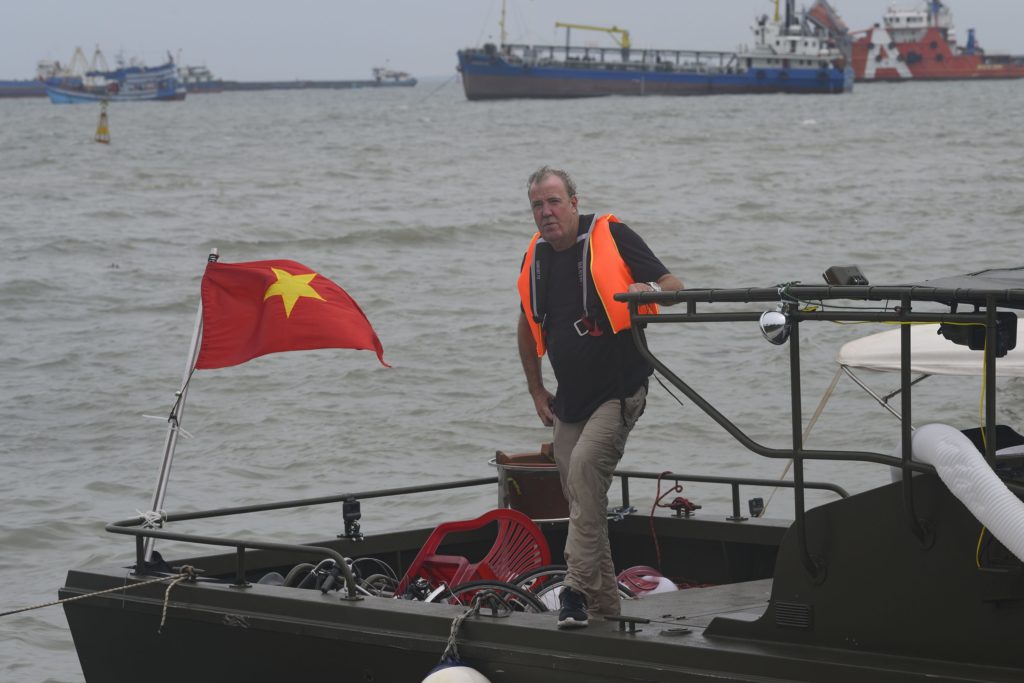
Have you had to take a pay cut as a result of the new deal?
Oh, no, Jake. Jake, we’re in England. Good Lord. No, I can’t go into money because I’d be going into everyone else’s money.
You’ve been working with Amazon since 2015. How is it working with Amazon compared to the BBC? Do you enjoy more freedom?
No, we have the same freedom. We have in our contract editorial freedom. Amazon agreed with that. That was the first clause that went down on paper, that we have editorial freedom when we start negotiations 2015.
Jeremy and I were talking about this. It’s funny that people… When we signed up, people were going, “Oh, it must be great. Now you’ve left the BBC, you can do what you like.” And we used to go, “What the f**k do you mean? How do you think we got into trouble so much at the BBC?” We did that because we did what we like. And Amazon have been exactly the same. I don’t think we’ve ever had an editorial note. So all that freedom is not an issue. Never has been.
We’ve always done what we wanted. We’ve always been good like that. Now, what’s had to grow is the human relationship, because we didn’t know each and there’s nothing untoward, we didn’t know each other at the beginning. And Amazon were, I don’t want to say they were fledgling, but they weren’t a broadcaster with broadcaster DNA. So they’re going into this world and we’re coming out of the oldest institution, which is, for better or for worse, the BBC is a dysfunctional family that I very much liked.
We began as a business relationship [with Amazon], but now we have a proper TV relationship. That’s what’s grown. We’re mates, whereas when we started, they were there in America. We were here in England. We’d done a massive negotiation through lawyers and that takes a while for that dust to settle, but now very good. We have a lot of good banter and dialogue.
Tonally, it felt a little different this episode. You’ve got Jeremy doing history lessons to camera. Was that intentional?
Well, you see, I would say that’s not unusual for us because if you watch a Grand Tour conventional episode, you can have a show where you’ve got Jeremy and Richard trying to get through Stansted airport on homemade vehicles. In the very same show, Richard can be doing a Jim Clark film, celebrating Jim and everyone’s in tears at the end of it. And that’s completely archive and historically driven. I think one of our skills is we can jump with our magazine hats on from, “Right, we’re going to make you stop and think soberly now,” to “All right. Hopefully, we’ll tickle your ribs now.”
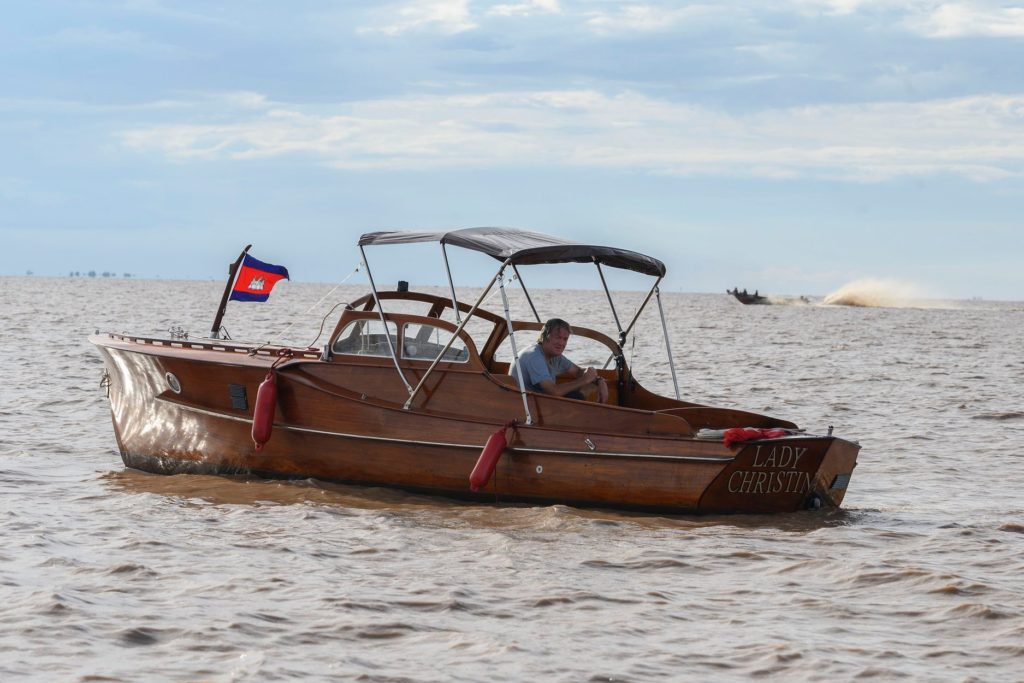
So extrapolate that into a special, that’s no drama for us. And Jeremy was like, “We’re in Vietnam. We’re in there with a PBR. It has got a history, so let’s sprinkle it in.” Because you know him, he’s a disciplined journalist and he’s bothered about attention span, deeply bothered about attention span. And he’s like, “We don’t want 90 minutes of crashing into boats in markets, so where else can we get variety?” And one thing was to drop in some stuff about the PBR. We can put those hats on quite easily, journalistically.
The other thing people might pick up on is we’re talking about global warming and the planet when we’re into that where the lake is, on the water. And we didn’t become crusaders, but we just reported what we saw.
That felt like a bit of a moment on the show. Was it the first time you properly acknowledged climate change, do you think, in the years you’ve worked together?
Yes, I think it is. And like I say, [David] Attenborough’s not going to be out of work just because we mentioned it. We’re not global warming campaigners. We’re just reporting what environment we found ourselves in.
Some people might put you in the global warming deniers camp previously, particularly Jeremy?
Could be Jeremy, but I don’t want to speak on his behalf. The TV show probably pissed about, but I wouldn’t say we were deniers. We never went, “This is not happening.” It might say something like, “It’s really hot and sunny outside, that’s because I bought a Range Rover, so you can thank me.” But that’s a t**t about comment, not a denier of the thing.
But what we saw there was climate change in action because the locals were going, “It should be not like this.” So you’d be remiss not to say that when you’re in it. And then Jeremy gives that gentle nod of going, “And don’t worry, the irony’s not lost on me. The man who presented a car show for 18 years, limited to seven miles an hour.” But yes, we’ve not become Greta [Thunberg] as a result of it.
What do you think of the new version of Top Gear on the BBC?
I’ve not watched it. I know Jeremy’s not watched it. And people go, “No, that’s bollocks. You must have.” But I’ve never watched one since the new inception, since 2015. Reason being, I don’t ever want to get asked about it. It’s like a bit of a baby. You want to just stick with your own memories of it. And I don’t want to get asked what I think of it. I think we did the best one, so I’m happy with that. And I’ve got loads of mates who work on it. I wish them well, but I don’t have any need to watch it.
The Grand Tour team is all splintering off and doing individual projects now You’ve got one to make, haven’t you?
I’ve got one to make. Don’t ask though, because I’ve not got a thought yet. There’s still a lot to do with these specials. I spend more time on it in terms of man-hours. So I want my one thing to be good because that’s a real treat to get that. So until I’ve had a good thought and I’ve had time to have a good think about a good thought, I am not going to rush. These specials are big and they’ve got to be done properly, even though we’re doing fewer shows, specials are still monsters and we’ve got smaller teams, so more brain power’s got to go into it.
Practically for the four of you, you’re spending more time apart from each other, has that been a good thing or a bad thing?
A bit of both. Good because when we get back together we’re all fired up. Everyone’s refreshed. I saw that in Madagascar in particular, the special we’ve just shot now. Everyone was on top f*****g form. Partly because we haven’t been living in each other’s pockets. Bad in that they used to come into the office… When we were making 12 shows a year, they used to come in every day, that was our base. So whenever I needed a meeting or we needed to discuss stuff, they were there.
It’s hard enough to get everyone together because everyone’s got their own time table. So that’s a ball ache for me and production, but like I say, worst things are happening. But that’s it really. That’s the only issue.
And how have you found working with the guys from Expectation?
Good, I mean, I didn’t know [Expectation cofounder] Tim [Hincks], but now I do. Love working with him and Peter [Fincham]. So complete no brainer being there. Completely comfortable. Absolutely from day one, completely comfortable. Very happy and the arrangement is very, as we spoke about last time, is very relaxed. I go in there, play, stay out of the rain. We make our show and it’s completely open as to how we can collaborate later, but I’ll make my solo thing through them. But beyond that, we haven’t talked about anything.
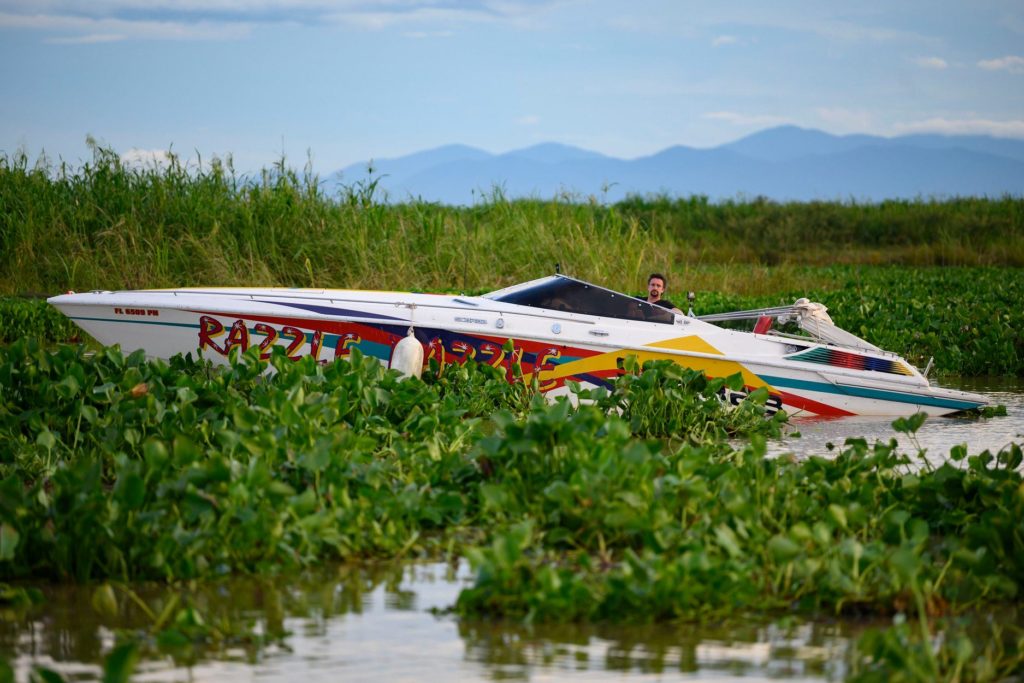
What do you think of the TV landscape at the moment?
Is it a great time for TV? I think it’s fucking amazing. I mean, cliche of all cliches, I’ll be the millionth person to say it, but in the scripted world, fucking hell.
When I watch what my kids now watch and embrace, when I watched my daughter watch Handmaid’s Tale and think… We didn’t have that kind of opportunity. All right, we still watched good drama. Line of Duty is still fucking incredible or what have you, but because kids love the lack of scheduling and that ease of watching, it trips them over into the quality programming that is then available.
Me and my son watch Top Boy and he can get there because he’s got no time for schedules. I think the quality’s awesome. I really do.
Does that present issues, does that mean you have to fight harder for attention?
Yes. We have had the best of the other years. We have had the best of scheduling. That’s done, banked forever. We had a show [ Top Gear] that never dropped for many, many years. I was always quite calculating about, like, we never went to BBC One, we always wanted to be a big dog on BBC Two because your numbers look great, whereas they get buried in BBC One, if you’re against EastEnders or something.
We had a good terrestrial run and now we’ve had a successful run on the streaming world, the download world because we do well with Amazon. We’re a big hit for them. So I’m very happy.
So you think you’re getting younger viewers to the show?
I still think that’s happening. I still think that’s happening. Obviously, less so because they’re not in charge of the credit card to go and subscribe, but I feel it and see it anecdotally. I think we still got that group who think one day I can live my life. I’ll never be Lewis Hamilton, but I could be a retard like one of those three [Clarkson, Hammond and May] and make a good living.
There’s quite a few factual producers going to drama at the moment. Would you ever be interested in doing scripted?
Yes, but I haven’t got the confidence. I think they are grade A and we are B+. I don’t know. It’s a different skill, I know. I went to watch Tom Cruise’s lot making a film and it’s very interesting talking to his team when they go, “You’ve got hundreds of hours of rushes and you’ve got to make something of that.”
And they’re impressed by that and I’m fucking impressed by, I’m overawed by their structure and discipline and foresight and planning. And I’m thinking, “Oh, my God, I couldn’t do that.” But then again, I watched him [Cruise] then redo stuff on the hop. Tom Cruise is doing it all the time, redoing, rejigging on the hop and it’s brilliant to see. So you think, “Bastards, you can do our other stuff as well.”
But scripted, I would love to. I would absolutely love to. And I think to be fair, we’ve got as good a grounding as anybody because these big specials, they do have to follow a loose structure of three acts or else you’re never going to get to the end holding viewers.
I remember going on the Robert McKee screenwriting course and the things that he teaches you about negatives and positives and negatives, you can’t have two positive scenes together. You’ve got to have a negative and a positive. James Bond gets captured, James Bond gets away. It can’t be James Bond gets away, James Bond meets a girl, James Bond solves everything. There’s got to be up and down all the time, you’ve got to keep the viewer in flux. And we do try for that.
What would be the ideal drama for you though?
I’ve got an idea for a film, but I’m not going to tell you. I can’t because then some other fucker will have it. I’ve had one for ages, which I want to do and when I get the courage, I will write it and then we’ll see what happens.
In the near future?
No, a few years. Before I get too old. I’d say a couple of years, a couple of years and then I will just go, “Right, everybody, f**k off. I’m doing this. Don’t knock on my door.”
But does that mean the end of Grand Tour?
Oh no, because there’s still time to do that. There’ll still be time, but at some point I have to lance that boil. Study it all the time. I watch and watch and watch how good drama works. Make all my notes all the time and like I say, I don’t think we’re a mile off on the structure and the principles and everything. But one day I will do that. I’ll lock the door and tell everyone to fuck off.
So you’re not going to have Jeremy starring in any way?
No, he can make the tea.
And in the shorter term, you have the Madagascar special next year?
That’s up to these guys [Amazon]. I’ll start cutting it. I’ll give it to you in what 15 weeks time? 16 weeks time? Something like that. And then it’s up to them to do as they wish, to drop it when it’s Jeff Bezos’ birthday or whatever’s a special day.
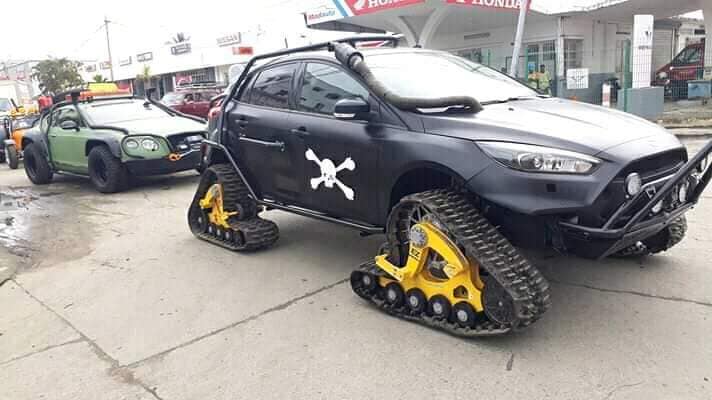
Have you met Jeff?
I’ve had an email. He sent us a “good luck” [message] before show one. Yes. So I’ve got his email address.
Do you think you could ever get him on the show?
We were going to do a film about Blue Origin. We were going to try and incorporate that in and we just couldn’t get it together because their timetable is their timetable. They can’t stop for a car show pissing about. And we just couldn’t get it together, but he was so amenable to throwing open the doors to all that to us.
Could you do a Blue Origin documentary?
I think he’s well covered actually with good people at the minute. I think he’s got really good people already have been documenting it from dot. So there’s no room for us in it.
Source: deadline.com
Click here to find more interviews with the trio on this website.
You can also visit us on Facebook, Twiter and Instagram.
Andy Wilman, Andy Wilman, Andy Wilman, Andy Wilman, Andy Wilman, Andy Wilman, Andy Wilman, Andy Wilman, Andy Wilman, Andy Wilman, Andy Wilman, Andy Wilman,
